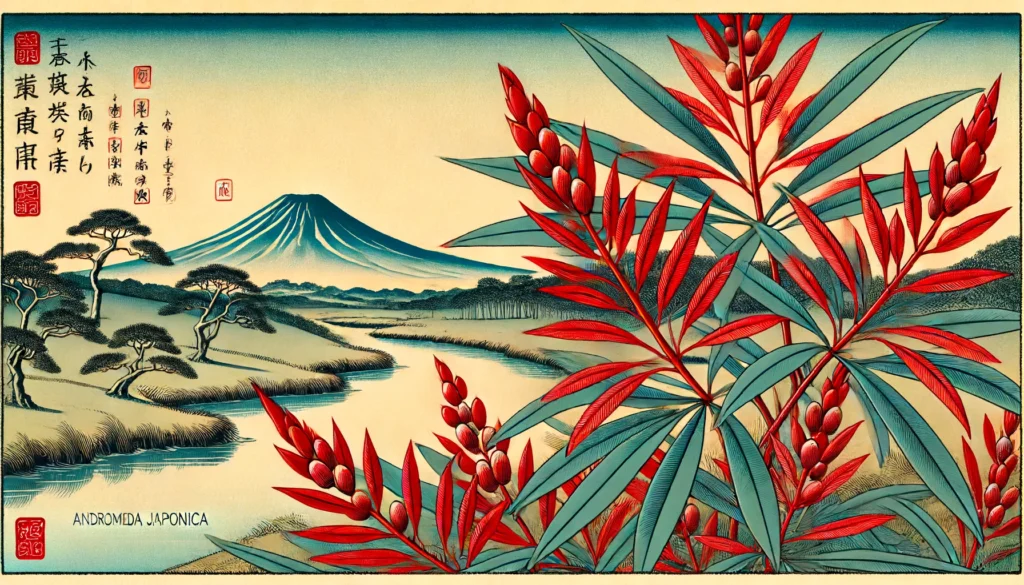

Home » Cat Plants » Does the Andromeda Japonica Plant Pose a Threat to Cats?

Andromeda Japonica, also known as Pieris japonica, Lily-of-the-Valley Bush, or Japanese Pieris, is a highly toxic plant to cats. While not typically associated with allergies, all parts of this evergreen shrub contain poisonous grayanotoxins that can cause serious health issues if ingested.
Andromeda Japonica is commonly found as an ornamental plant in gardens and landscaping in temperate regions.
Ingestion may cause mild gastrointestinal upset, but is generally not life-threatening.
Ingestion can result in mild symptoms like vomiting, diarrhea, or drooling. Rarely fatal but may require veterinary care.
Eating these plants can lead to more pronounced symptoms like abdominal pain, lethargy, or difficulty breathing. Veterinary intervention may be necessary.
Ingesting even small amounts can cause severe symptoms like organ damage, seizures, or cardiac failure without rapid treatment.
All parts of these plants are extremely poisonous to cats and can quickly lead to death, even with immediate veterinary care.
** Please note: Please note that toxicity level can vary based on the amount ingested and the specific cat. It's always best to keep these plants completely inaccessible to cats and seek immediate veterinary care or call the poison hotline if you suspect your cat has ingested any part of a toxic plant.
If a cat ingests any part of the Andromeda Japonica plant, it may experience various symptoms due to the toxic grayanotoxins present. The severity of the symptoms depends on the amount consumed, but common signs of Andromeda Japonica poisoning in cats include:
If you suspect your cat has ingested Andromeda Japonica, seek immediate veterinary care. Your veterinarian will likely perform the following steps to diagnose and treat your cat:

A: Cats are not allergic to Andromeda Japonica, but the plant is highly toxic to them. It contains grayanotoxins, which can cause severe poisoning if ingested.
A: Symptoms of Andromeda Japonica poisoning in cats include vomiting, diarrhea, excessive drooling, weakness, abnormal heart rhythms, and in severe cases, cardiac failure and death.
A: All parts of the Andromeda Japonica plant are toxic to cats due to the presence of grayanotoxins. This includes the leaves, flowers, and stems.
A: If you suspect your cat has ingested any part of Andromeda Japonica, seek immediate veterinary care. The veterinarian may induce vomiting, administer activated charcoal, and provide supportive care such as IV fluids and medications to stabilize heart function.
A: Yes, there are many pet-safe plants that cat owners can keep instead of Andromeda Japonica. Some options include spider plants, Boston ferns, and catnip. Always research a plant’s safety before bringing it into a home with cats.
A: To prevent your cat from accessing toxic plants, remove such plants from your home and garden entirely. If you must keep them, place them in areas that are completely inaccessible to your cat, such as in a closed room or high shelf. Consider using deterrent sprays or physical barriers to keep your cat away from these plants.
Andromeda Japonica is native to the mountainous regions of Japan, where it has been cultivated for centuries. The plant was introduced to Europe and North America in the 19th century as an ornamental shrub, valued for its evergreen foliage and early spring flowers. In Japan, Andromeda Japonica was often planted in tea gardens and near shrines and temples. The plant’s wood was used for charcoal, and branches were used as alcove posts in tea rooms. Despite its attractive appearance, Andromeda Japonica has a long history of being recognized as a poisonous plant, with its toxicity affecting both humans and animals.
Please note: The information shared in this post is for informational purposes only and should not be considered as veterinary medical advice.
🐾 A hilarious or heart-melting cat video
🐾 Our latest paws-on review of a cool cat toy